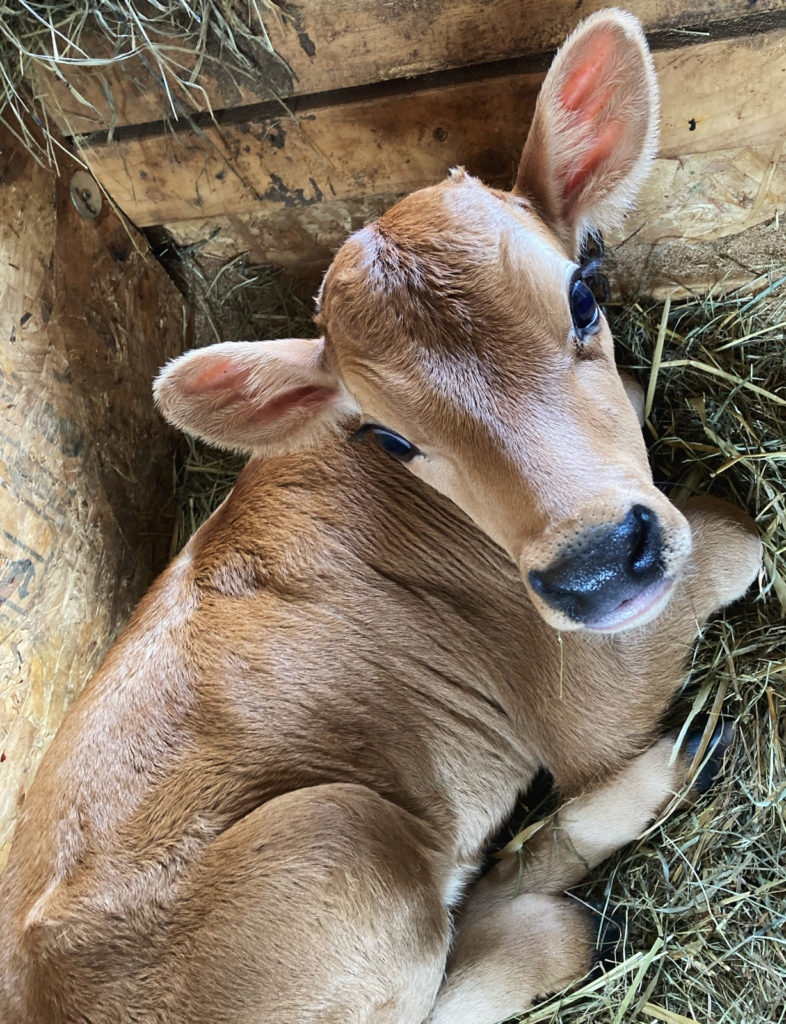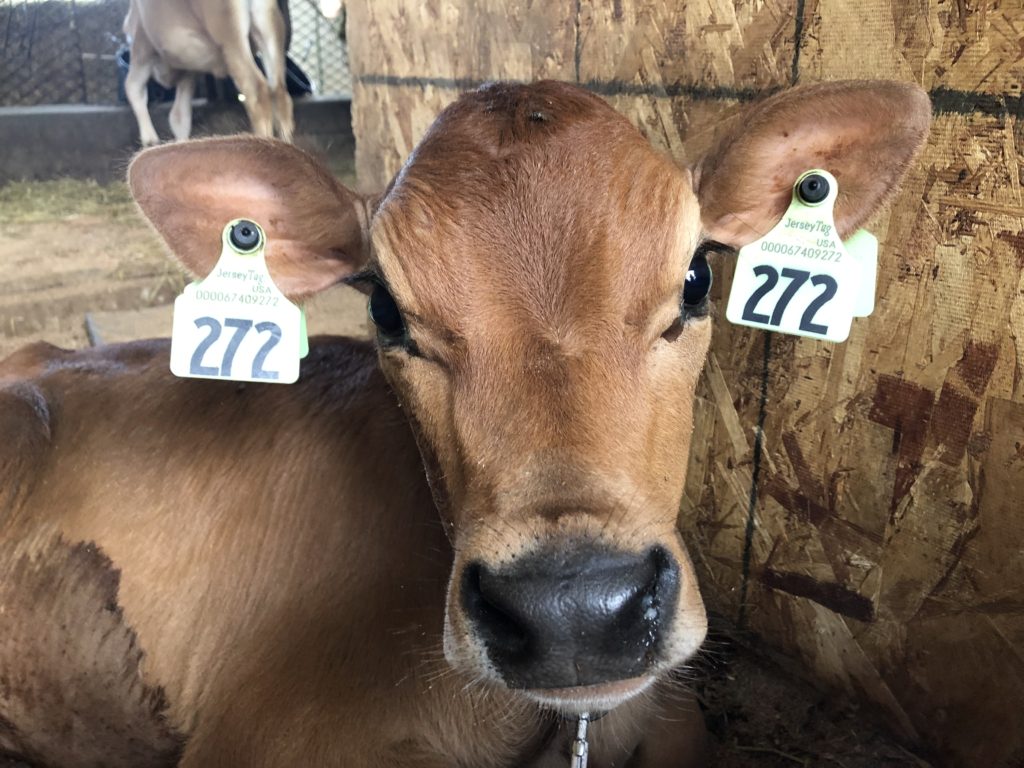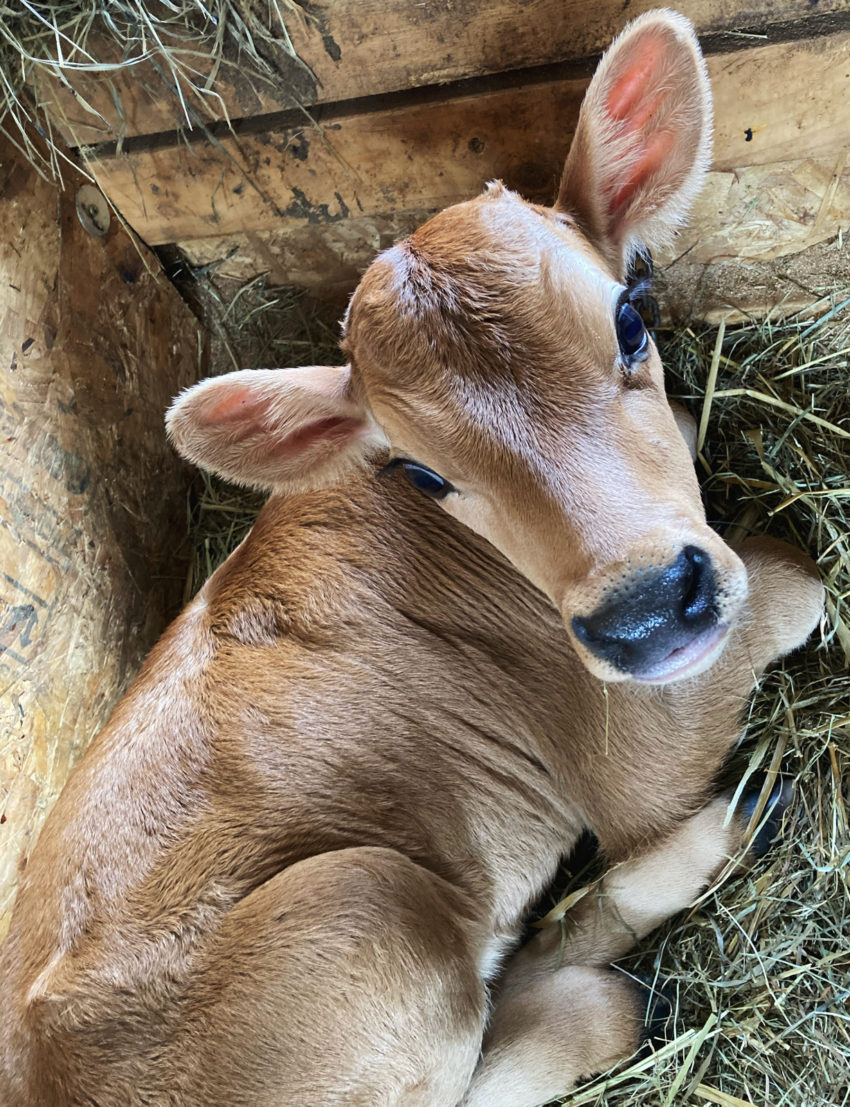As everyone who has walked into our barn knows- and what many people assume anyway- Jersey calves are adorable! They are small- usually weighing around 50 lbs. when they are born- very friendly, excited to play and make new friends. Especially if those friends come bearing gifts of hay or milk at feeding time.

What most people don’t know, is that if we want the healthiest and most productive cows in our milking herd, we need to make sure that our calves are as healthy and happy as they can be. Healthy calves make healthy cows, and sick calves turn into sick cows. This is why the health of our calves is a top priority for us. So what do we do to make sure our calves are in tip-top shape? Keep reading to find out!
Calf cleanliness, diet, and stress are the top factors that will affect their overall health and well-being. The tricky part is that this applies even when they aren’t born yet. That’s right, how their moms are treated, especially the last month before calving is essential to having a quick and low stress birth which is important for a healthy calf. During the winter our dry cows (cows that are late in their pregnancy and not giving milk), are kept at home with the milking herd, during the summer they stay out on pasture just up the road and are brought back to the home farm around 2 weeks before they are due to have their baby. This allows them to adjust back to living near the barn before they have their baby and reduces the amount of stress that they will experience at one time. We will always move cows in groups of 2 or more, so that they always have a friend to hang out with and ease the transition.
When a cow begins to calve, we move her to a large clean area with lots of space and fresh hay. This gives her a little bit of room away from the other cows, and makes sure that when the calf is born it will arrive into a clean warm home. We check on the cow constantly to make sure she is doing okay, and that she doesn’t need help with her baby- sometimes the baby will have legs or its head tucked sideways or down and this will prevent the mom from pushing the baby out. In those cases, we will put on clean gloves and help move the baby around into a streamlined position to make it easier for the mom. Just like with humans, a calf can only stay in the womb for so long after the water has broken before it begins to get stressed out and is in danger. Our goal is to prevent this from happening at all, and to make it an easy birth for both momma and her new baby.
After the calf is born, the biggest priority is making sure they are warm, clean, and safe. If mom is strong and healthy she will clean the calf and try to get it to stand up and eat something. Other times, especially with new moms, old moms, or after a hard calving the momma cow will be very weak and shaky. If this is the case we will take the calf away and clean it up and give it a cozy stall so that mom doesn’t accidentally step on or lay down on the calf. This helps keep the calf safe, and makes it easier for us to give the new baby and the new mother all the care they need.
After the calf is clean, and dry, we need to make sure that it eats something. Calves are born with very little nutrients in their bodies, so it is essential to give them a meal packed with healthy fats, proteins, and that will be easy to digest and absorb. For this we need a special milk from the mom that she only makes for 3 days after she has her baby- Colostrum. We milk mom into a special travel tank to get this colostrum and we feed it to the baby for the first three days. This helps give the calf a strong foundation so that it will grow quickly and will be healthier overall.
The first three days are the most important days in the calves life, so we make sure that it is staying very clean and has access to good water and lots of milk. This is the foundation for a healthy calf and a healthy cow. Beyond the first three days calf care is relatively simple. We need to keep them in a clean environment so they are less likely to get sick. We make sure they are eating enough and have lots of clean water so they will stay strong, healthy and will continue to grow. We also keep calves grouped near each other so that they will have friends to socialize with and will be able to learn from each other as they grow. With all of their needs met, our calves grow into strong, happy cows who make delicious milk!

